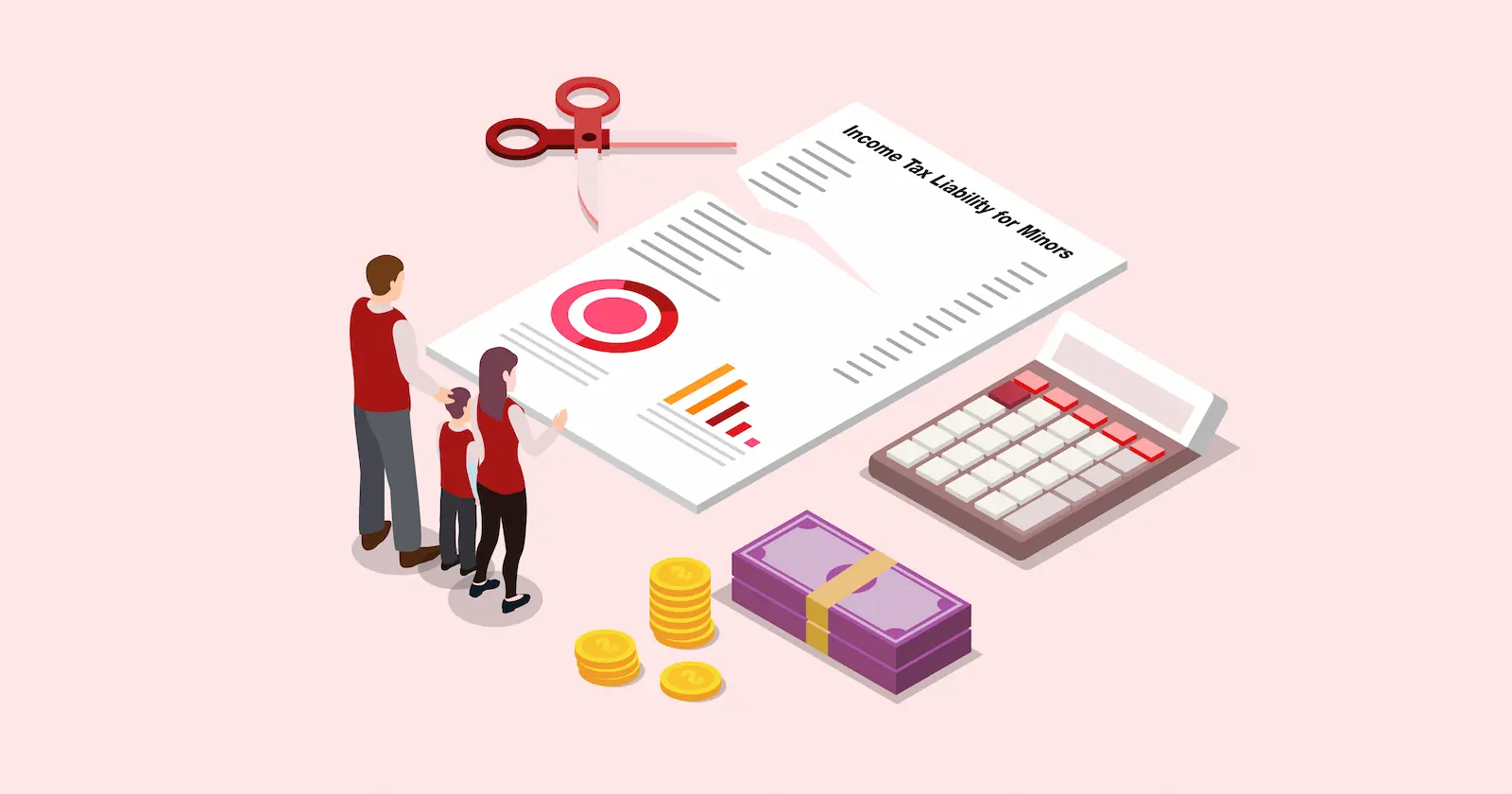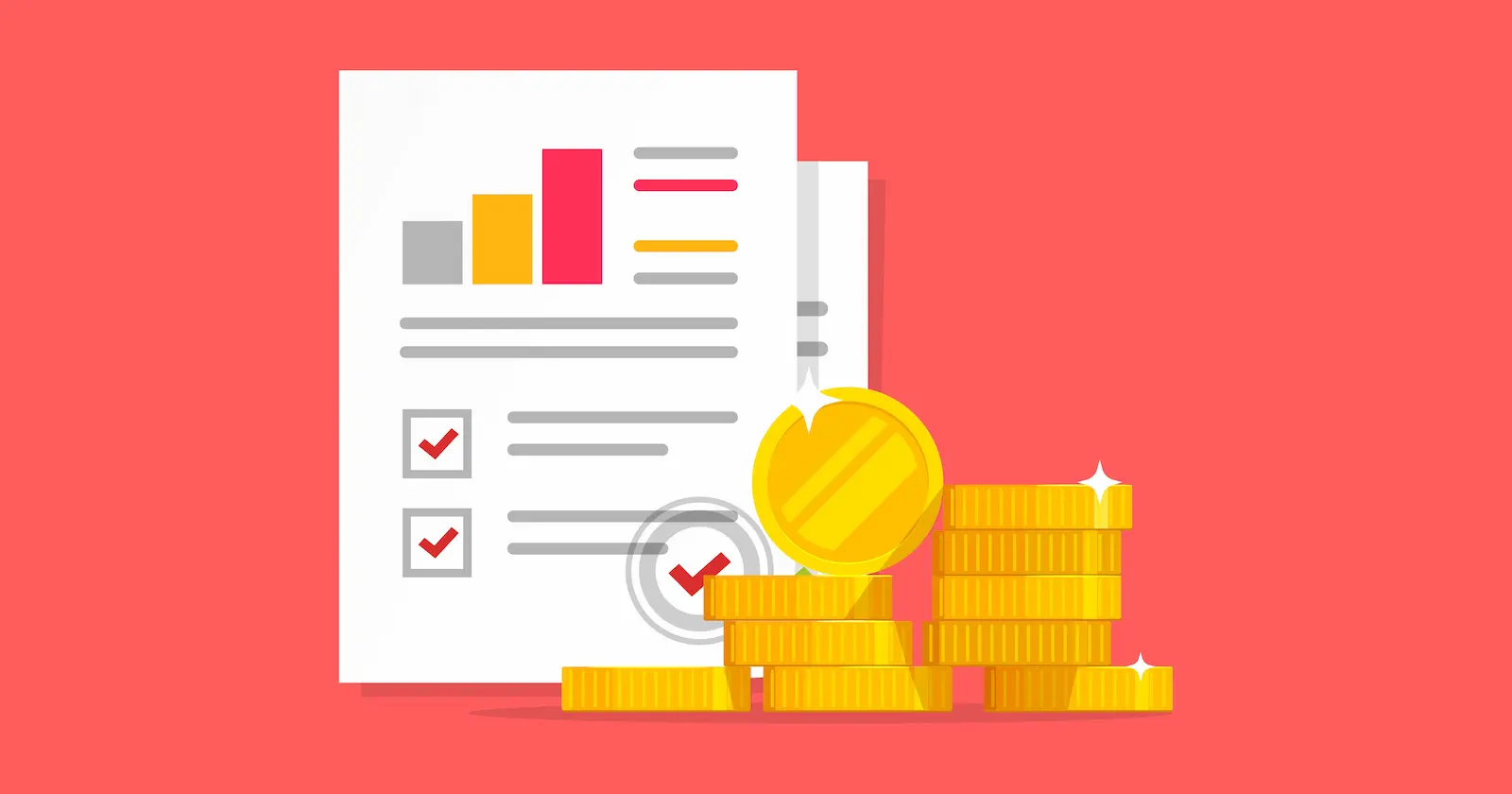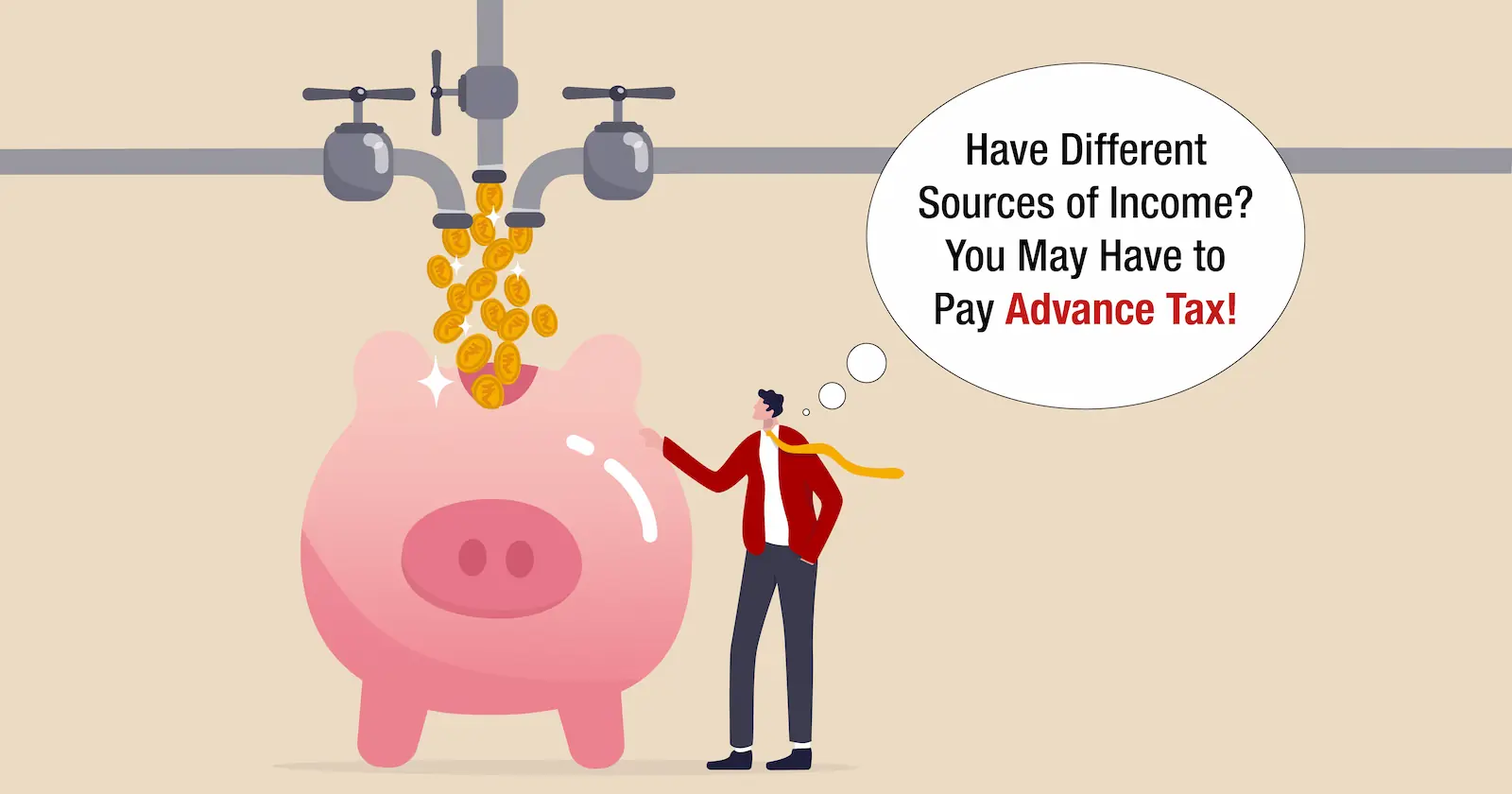Even though the government has banned child labor under the Child Labor (Prohibition and Regulation) Act, 1986 which is applicable to all children until the age of 18years, minors can also earn income from other sources.
Since technology is advancing at a rapid pace, children are learning at a faster pace too. Earlier, children were not exposed to as many opportunities as they are now. These days, teenagers are doing various odd jobs and earning money for themselves. Many youngsters have even started their own businesses.
If a minor (below the age of 18) earns an income above the taxable slab, then it is the responsibility of the minor’s parent/guardian to file taxes on behalf of the earning child. This is because there is no minimum age bar on filing income tax returns.
A minor needs to file their taxes if they have an income that amounts to more than ₹1500 per month. The income can be earned or unearned
Let us understand the types of income for minors.
What are the types of income for minors?
Any money that a minor child receives falls into one of two categories:
- Earned Income – It will be regarded as earned income if a minor receives it as a prize for participation in events, shows, and sports, as well as through his or her own venture, business, or part-time work.
- Unearned Income – But on the other hand, it will be seen as unearned money if he has collected funds through presents from family, friends, or relatives. This will also include any interest he receives from savings accounts, fixed deposits, or any assets his parents have placed in his name.
The question is - Do minors have to pay taxes?
The answer is yes, minors have to pay taxes! Under Section 64(1A), any amount that is received by a minor will be included in the income of their parents and the taxes on that income will be the same as the tax on parent’s income.
Minors are any individuals who are below 18 years of age. Minors can receive an income from various sources such as savings from fixed deposits or from interest earned on bank accounts or any other investments in their name.
If the minor’s income per month is less than ₹ 1,500, it won’t be added to the parent’s income. If the minor’s income is greater than ₹ 1,500 per month then the parents have to pay tax on that income and that income will be treated as parent income.
There are certain conditions on tax on minors’ income depends upon the situation of father and mother. These conditions are listed below:
- If both the parents are receiving income, then the income of the minor will sum up with the parent’s income and especially to the parent whose income is greater.
- In the case of divorced parents, the income of the minor is added in the income of the parent who has custody.
- If the minor is an orphan, then, in this case, a separate income tax return is needed to be filed. And it is not clubbed with the guardian’s income.
There are some exceptions to this.
- When a child earns an income by way of any work or from an activity for which he uses special talent or knowledge, the minor is required to file an income tax return. Like a Master chef Junior winner would have to pay taxes of his own.
- If a child is disabled with disabilities as mentioned under Section 80U of the Income Tax Act, 1961, then the income of a child will not be added with the income of the parent. A child is considered disabled when the minor has more than 40% disability as certified by the authorities.
For the purpose of section 80U of Income Tax Act 1961, disability has been defined as one of the following:
- Blindness
- Low vision
- Leprosy-cured
- Hearing impairment
- Loco motor disability
- Mental retardation
- Mental illness
The section 80U also provides a definition for a severe disability which refers to a condition where the disability is 80 percent or more. Severe disability also includes multiple disabilities, autism and cerebral palsy.
What is the meaning of "Clubbing Money"?
If the minor child hasn't reached majority, only then can a parent's income be combined with that of their child. The act of combining the income of the parents and their children is referred to as "clubbing the money." In accordance with the Income Tax Act, a child's earnings from a side job or his or her own business may be added to their parents' income. In the event when both parents of a minor are employed, the minor's earnings must be combined with those of the parent with the higher income.
It must be noted that income once included in the total income of either of the parents would continue to be included in the hands of the same parent in the subsequent years, unless assessing officer is satisfied that it is necessary to do so, after giving that parent opportunity of being heard.
Additionally, if a child attains majority during the previous year, then, part of the income earned by the child during his minor period would be clubbed in the hands of the parents.
When Child’s Income does not qualify for Clubbing
In the following situations, minor child income will not be clubbed in the hand of the parent:
- Manual work is done by the minor.
- Activity involving the application of his skill, talent or specialized knowledge and experience.
- The child is suffering from any disability specified under section 80U.
Who has to file income tax returns for minors?
A minor is required to submit tax returns on his income because there is no age restriction, but his/her parents may also do so on his behalf. If a guardian or person handling the child's affairs is filing the returns, they must upload the necessary documentation verifying their authority to the income tax website. Once that is done, s/he can file the minor's tax returns as a "representative assessee."
If Guardian or Manager of the minor meets the requirements, they will have to register as a ‘representative assessee’ by logging in to the income tax website and uploading the specified documents to prove your credentials. Once your request is approved and you are registered, they can file the returns of the minor you are representing.
Is it possible for a minor to have a PAN card?
Yes, a minor could have a PAN card. Moreover,his or her parents or legal representatives may apply for one. In addition, if the minor is filling his/her tax returns on its own, s/he will need to have additional information including the username and password for the income tax portal, bank account information, information about his income, a mobile phone number, and an email account.
Important Information to Understand Before Minors File Their Own Income Tax Return
The following pointers must be kept in mind before minors file their own income tax returns
- Before minors file their own tax forms, it is important to explain concepts like total earnings, taxable income, pension funds, medical insurance, and more.
- Minors are required to sign their own tax forms.
- Children must keep a record of their income and expenses throughout each fiscal year for future reference and safety.
- It is essential to correctly enter the taxpayer's name and tax identification number on the returns form.
- Tax records are highly confidential, and children must understand this.
- The most practical and trustworthy way to file an ITR for minors is to hire a tax consultant.
Minors who want to file their income tax return will have to have some basic documents with them which are as follows:-
- PAN Card
- Income details i.e., cash received, cheque received, cash deposits in a bank
- Details of savings i.e., fixed deposits interest, savings interest, contribution in funds and so on
- Active Mobile & Email ID.
- E- filing portal login details
- Updated Bank Details (Name, IFSC Code & Account No.).
Who is eligible for a tax refund?
There are a lot of things one needs to be fully aware of while seeking income tax refunds. The following entities must mandatorily file ITRs in accordance with the Income Tax Act:
- All persons below the age of 60 who made more than ₹ 2.50 lakh in the most recent fiscal year
- Every senior earning more than Rs 3 lakh throughout the financial year, between the ages of 60 and less than 80 years of age.
- All extremely elderly individuals who are 80 years of age or more and made more than Rs 5 lakh during the fiscal year.
- All registered businesses that are making money
- Individuals with assets outside of India
- Those intending to file a claim for a refund of excess taxes paid or deducted
- If any property income exists that falls under the charity trust.
- If any annual information return transaction was made
Can a Minor Get a Refund on Income Taxes?
If someone has paid more in taxes than their actual tax bill, they are able to request an income tax refund. Such a situation occurs when a taxpayer's self-assessment tax, advance tax payment, or TDS deduction is greater than his actual tax bill.
If a taxpayer submits income tax returns for a given year, they are eligible to request a refund of any excess tax that was deducted from or paid during that financial year.
According to the Income Tax Act, in order to be eligible for an income tax refund, the taxpayer must file their return by July 31 of the applicable Assessment Year. Minors can receive their tax refund in due time, just like any other Indian taxpayer, if Income Tax returns are filed in their name and all requirements are met.
Conclusion
Taxation for minors made easy! Moreover, minors can SAVE TAXES.
Yes, you read it right! Minors can benefit from a sizable tax deduction on their taxable income thanks to various tax-saving instruments under Section 80C of the Income Tax Act. Before starting the process right away, do thorough study because the taxes structure is subject to changes. To know more, connect with a trusted financial advisor today!





Comments